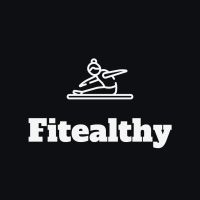from aps6mtr@lemmy.world to vegan@lemmy.world on 29 Jan 2025 13:00
https://lemmy.world/post/24872877
According to a survey approximately 3% of the population (about 230 million people) are choosing a vegan diet, and this number continues to grow steadily. Being a vegetarian or a vegan can be very beneficial for both your physical and mental well being, there are a few important factors to keep in mind if you decide to follow a vegan diet. The Problem Being a vegan means adopting a plant-based diet and cutting out animal products, which let’s face it are a sources of several vital nutrients. If veganism is not done the right way, it can result in nutrient deficiencies. For instance, individuals with a vegan diet are often found being deficient in vitamin B12, iron, calcium, and omega-3 fatty acids. A recent study found that above 50% vegans were deficient in vitamin B12. This can cause fatigue, weakened bones, and impaired immune function. While a diverse plant-based diet offers many health benefits, these nutrient gaps can undermine overall well-being if not addressed properly. The Cause The primary reason for nutrient deficiencies in vegans, I believe, is a lack of proper knowledge. Let’s break down the key nutrients often missing in a plant-based diet and explore ways to address these gaps:
- Vitamin B12 Vitamin B12 is naturally produced by bacteria in the gut, primarily in the digestive tracts of animals. Since plants do not contain B12, animal products are the main dietary source for humans. As a result, people following a plant-based diet are at a higher risk of B12 deficiency, which can lead to neurological issues and anemia if not properly managed.
- Iron While iron is present in plant foods, it exists in a form called non-heme iron, which is less readily absorbed by the body compared to the heme iron found in meat. This can lead to iron deficiency.
- Calcium Dairy products are well-known for their high calcium content, which is essential for bone health. Without dairy, vegans may not get optimal Calcium intake.
- Omega-3 Fatty Acids Fatty fish is the primary source of essential omega-3 fatty acids important for brain and heart health. Plant-based diets mostly provide a form of omega-3 which the body converts inefficiently.
- Zinc Plant food often contains phytates – a compound that bind to zinc and reduce its absorption. This makes it harder for the body to absorb enough zinc, putting those on a plant-based diet at a greater risk of deficiency.
- Vitamin D Vitamin D is found in very few plant-based foods, making it difficult for vegans to meet their needs, especially in regions with limited sunlight. The Solution Thankfully, with proper planning and supplementation, it is entirely possible to avoid these deficiencies while adopting a plant-based diet. Here’s how:
- Supplementation Vitamin B12: Take a B12 supplement or consume fortified foods like plant-based milk and breakfast cereals. Omega-3: Consider an algae-based omega-3 supplement to ensure adequate intake. Vitamin D: If sunlight exposure is limited, a vitamin D supplement can help maintain optimal levels.
- Dietary Choices Iron: Include iron-rich plant foods such as lentils, spinach, quinoa, and tofu in your diet. Pair them with vitamin C-rich foods (citrus fruits, bell peppers) to enhance iron absorption. Calcium: Focus on calcium-rich plant sources like fortified plant-based milk, leafy greens (kale, bok choy), almonds, and calcium-set tofu. Zinc: Incorporate zinc-rich foods such as chickpeas, lentils, pumpkin seeds, and whole grains. Soaking or sprouting grains and legumes can improve zinc absorption.
- Fortified Foods Fortified plant-based products can be a great source of key nutrients, including vitamin B12, calcium, and vitamin D. Check labels to ensure you’re choosing fortified options.
- Regular Health Check-ups Regular blood tests can help monitor nutrient levels and detect deficiencies early, allowing you to adjust your diet or supplementation accordingly.

#vegan
threaded - newest